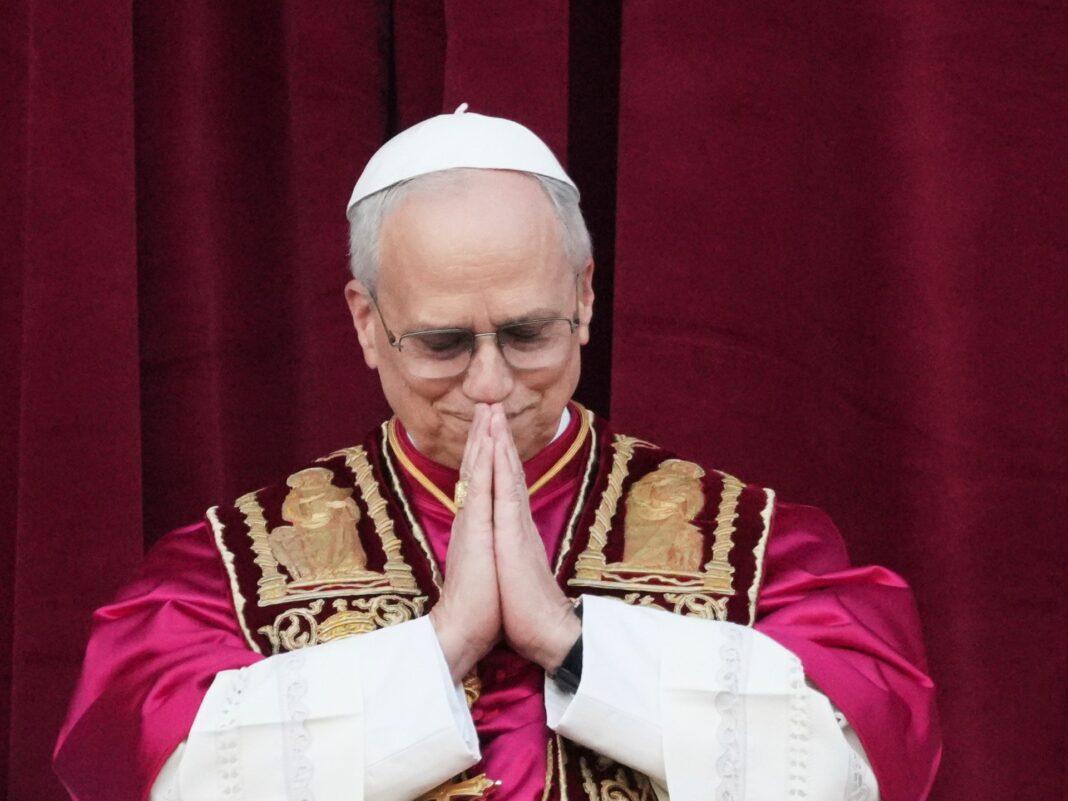Leo XIV, the first American pope, voted in past Republican primaries but is not formally registered with any party.
By
Published On 11 May 2025
Hours after Robert Prevost became the first United States-born pontiff on May 8, social media discussions in the US speculated whether Pope Leo XIV, as he is known after the election, was a “registered Republican”.
“SCOOP: Our Turning Point Action team pulled the voting history for Pope Leo XIV,” conservative influencer Charlie Kirk wrote on social media platform X on May 8. “He’s a registered Republican who has voted in Republican primaries when not living abroad. Our data shows he’s a strong Republican, and he’s pro-life.”
Many other X posts called Prevost a “registered Republican”.
Prevost, 69, is a registered voter in Will County, Illinois, and has cast ballots there over the past 13 years. In Illinois, voters do not register by party affiliation. But they declare a party when voting in a primary, according to an April video by the Illinois State Board of Elections.
“However, you are not tied down or formally registered to this party and are free to vote for another party at a subsequent election,” the video says.
The Illinois voter registration application does not ask people to provide a party affiliation.
The Will County clerk’s office sent PolitiFact Prevost’s voter information, which lists his party affiliation as “undeclared”. It shows that he voted in the 2012, 2014 and 2016 Republican primaries. He voted absentee in the 2024 general election, with an undeclared party affiliation.
The viral screenshots Kirk and others shared on X are from L2, a paywalled database that aggregates consumer and voter data. L2’s profile of Prevost lists “Republican” in its “party” field.
🚨 🚨 🚨 New Pope is a registered REPUBLICAN! pic.twitter.com/bj8MH8H2Qs
— Jared Small 💁🏼♀️ (@jaredsmall) May 8, 2025
It is unclear how L2 determines a party affiliation for people who live in states such as Illinois, where this information is not included in voter registration. L2 did not respond to PolitiFact’s request for comment.
Born in 1955, Prevost grew up in Dolton, Illinois, a Chicago suburb. He was ordained as a priest in 1982, then moved to Peru, where he lived from 1988 through 1998. In 1999, he returned to Chicago to serve as the prior provincial of the Augustinian province of “Mother of Good Counsel”, which covers the Midwest and Canada.
Prevost’s voter file lists his address to a house owned by his brother, John Prevost. We were unable to determine Robert Prevost’s address or where he was registered to vote before 2012. In 2014, he returned to Peru and served as the bishop of Chiclayo from 2015 to 2023. He then moved to Rome, where he has lived since.
US citizens who live overseas and meet certain criteria can vote absentee while abroad.
We contacted the clerk’s office in Cook County, Illinois, where Chicago is located, to ask whether Prevost has a voter file in the county. The clerk’s office directed us to submit a Freedom of Information Act request for that information; we did so, but did not receive an immediate response.
Elizabeth Shakman Hurd, chair of religious studies and political science professor at Northwestern University in the Chicago suburbs, said Prevost’s voting history does not tell the public “much about his views or positions other than that in that particular primary he was inclined toward one or more of the Republican candidates”.
Our ruling
X posts said Prevost is a “registered Republican”.
Prevost is registered to vote in Illinois, where voters do not register with a party affiliation. However, they declare a party affiliation when voting in a primary. County records show Prevost voted in three Republican primaries from 2012 through 2016, the most recent records we obtained.
Still, the Illinois State Board of Elections says when voters participate in primaries, they are not formally registered to a party.
No one is registered by party affiliation in Illinois, and evidence is scant about Prevost’s voting history over his lifetime.
The statement contains an element of truth but ignores critical facts. We rate it Mostly False.
PolitiFact researcher Caryn Baird contributed to this fact-check.


